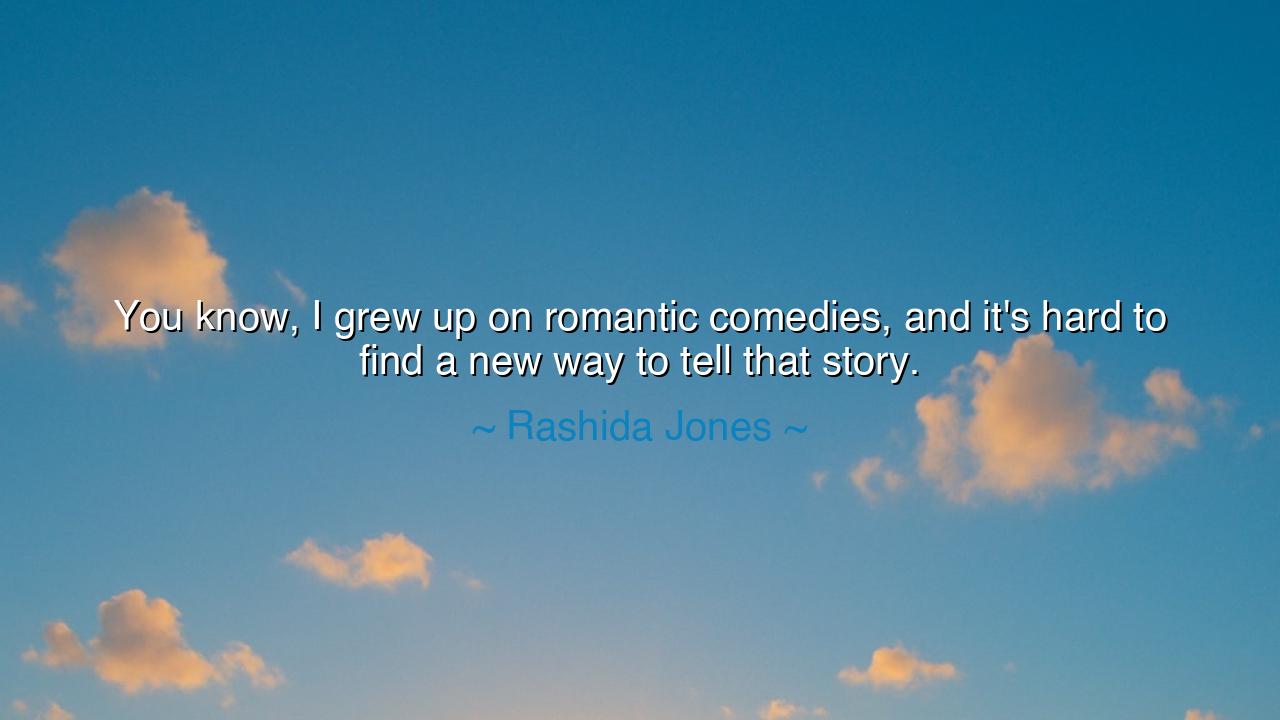
You know, I grew up on romantic comedies, and it's hard to find a
You know, I grew up on romantic comedies, and it's hard to find a new way to tell that story.






In the words of Rashida Jones, “You know, I grew up on romantic comedies, and it’s hard to find a new way to tell that story.” These words, though spoken of cinema, are in truth about life itself. For the tale of love has been told since the dawn of time, repeated in song, poem, myth, and film, and yet still it is sought, still it is cherished. Why? Because the story of love, though ancient, is ever new in the hearts of those who live it. And yet, as Jones observes, to tell it in a way that feels fresh is a task both noble and difficult.
The ancients knew this dilemma well. The Greeks sang of Paris and Helen, of Orpheus and Eurydice. The Romans told of Dido and Aeneas. Centuries later, Shakespeare wrote of Romeo and Juliet, of Benedick and Beatrice. And in each age, the story of romantic love was reborn, clothed in new garments, but carrying the same eternal themes: longing, misunderstanding, sacrifice, reconciliation. Rashida Jones’s lament that it is “hard to find a new way” reminds us that love’s story is both timeless and elusive—it is a river always flowing, yet difficult to capture anew in words or art.
History shows us this cycle clearly. Consider the Middle Ages, when troubadours sang ballads of courtly love, repeating the same motifs of knights adoring unattainable ladies. These tales were not new, but they were beloved, for they spoke to the yearnings of that age. And later, in the modern era, writers of novels and makers of films reshaped those same themes into the romantic comedy—where obstacles, misunderstandings, and laughter led at last to love fulfilled. Each retelling is both repetition and renewal, for though the story is the same, the voices, the settings, and the hearts that hear it are ever-changing.
And yet, Jones also speaks a warning: that to repeat without imagination is to weary the soul. The challenge is not that love is old, but that storytellers must find ways to reveal its eternal truth through fresh light. This is the task of every artist, and indeed of every human soul—to take what is ancient and make it feel alive again. The romantic comedy is not dead, nor is the story of love stale; it simply waits for new eyes, new voices, and new courage to tell it in ways that pierce through the familiar and reach the heart anew.
The deeper meaning here is that love itself is never truly “new.” What changes is not the essence of love, but the lens through which we see it. To one generation, it is rebellion; to another, it is reconciliation; to another, it is quiet companionship. The story endures because the human soul endures, and as long as hearts beat, they will crave the telling and retelling of their most sacred desire: to love and to be loved.
Thus, the lesson is plain: do not despise the familiar, nor fear the difficulty of renewal. Instead, embrace it. When you tell your story—whether in art, in word, or in the way you live—seek not to invent love anew, but to reveal how it shines uniquely through you. Just as the stars are countless yet each one burns differently, so too does each love story matter, even if its outline is ancient.
And what should you do? Live your love story as though it were the first ever told. Do not compare it endlessly with those of others, nor dismiss it as cliché. Instead, pour your truth into it—your laughter, your struggles, your sacrifices—and in doing so, you will make it new. For the ancients remind us that though love’s form repeats, its flame is never the same twice. And Rashida Jones’s words echo this wisdom: that the challenge of love is not its age, but the courage to tell it again, with heart, with sincerity, with wonder.






AAdministratorAdministrator
Welcome, honored guests. Please leave a comment, we will respond soon